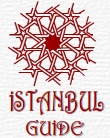Family That Walks on All Fours

Five siblings from Turkey who walk on all fours could provide science with an insight into human evolution, researchers have said. The four sisters and one brother could yield clues to why our ancestors made the transition from four-legged to two-legged animals, says a UK expert. Defne Aruoba, a Turkish psychologist founded the Ulas Foundation and wrote an article about the Ulas family. Please have a look below:
The Family and Me by Defne Aruoba
To read
more please visit the web site: http://www.pbs.org/wgbh/nova/allfours/
It's been over a year since I first met the Ulas family. Now that I'm writing about "these extraordinary people"—as most scientists like to call them—I wish I had kept a journal last summer. But then again, who had the time? Along with the scientists, the film crew, and the local people who were helping us, I was working 14-hour days, dealing with a wide range of problems, obstacles, and intense emotions.
I remember at first they felt "extraordinary"
to me as well, but now they are my friends. Well, more than friends—friends
usually don't change one as much. This experience has had such an enormous impact
on how I think and feel about some of the most important issues in life, both
in my personal life and in the life that exists on this planet in general.
The
true nature of altruism
I now know from firsthand experience that justice is, in fact, just a concept. Altruism is really not practiced as much as it could be. The Ulas families of this world can be helped and their situation improved with very little effort from the more fortunate. Moreover, everybody is aware of this.
 | The
true nature of altruism But somehow our daily lives don't allow us to remember and make room. We all feel the urge to give to others; even the most selfish person thinks about helping someone at some point. But then the phone rings or family or business matters intrude, and we are back in the little individual worlds we have created for ourselves. Those little worlds make us feel safe, as if we could never become ill, get old, or die. Especially in the more civilized parts of the world, the house, the money in the bank, the career, the fit body, the family, the lover make up the safety nets, the silk threads of our cocoons. This illusion of protection is at the root of our separation from the rest of life and, consequently, the cause of our misery. |
“I didn’t want to be there as a ‘psychologist.’ I just wanted to be there for them.”
The remarkable thing about "altruism,"
which I discovered while I was spending time with the Ulas family, is that it
is reciprocal. Altruism is not just about giving, or helping, or concern for the
welfare of "others." It is also about opening yourself up to foreign
territory and feeling that nothing/nobody is really "other" than you.
It is about getting past the illusion of separation to a place of union, where
it is no longer clear who is helping whom.
A feeling of protectiveness
I have lived my whole life in two of the most hectic, cosmopolitan, ambitious cities in the world: Istanbul and New York City. Just going to the remote Turkish village where the Ulas family resides was a very unusual experience for me.
I was the first one to arrive there, because the rest of the science and film crew were traveling in a different car. I approached the stairs that lead up to the family house dragging a suitcase full of old clothing I had brought for them. I had heard that these people were quite deprived, and I had seen an obscure one-minute video of one of the affected siblings. That was all. I didn't know what to expect—nobody did. As I went up the stairs, my initial feeling was one of fear. Fear of the unusual, and fear of my own boldness. It sounds like a contradiction, but that's how it was. I had no plans, no clue to what I was doing.
At first the family members looked at me with questioning eyes. But as we started checking out the outfits, joking around with the girls, mostly with gestures, we all started to feel at ease and began having fun with one another. I was among friends, visiting them at their family house. These weren't scientific breakthroughs for me. They were Asiye, Miyase, Bayram, Cebrail, Hacer, Emos, Senem, Safiye, Huseyin, Gulin, Zeynep, and their parents. And from that point on my initial fear transformed into, and continues to be, a feeling of protectiveness towards these people. I knew within the first minutes of meeting the Ulas family that I didn't want to be there as a "psychologist." I just wanted to be there for them, in whatever capacity they needed me.
A father's concern
My main motivation for joining the team of scientists and the film crew had always been "How can this international exposure help the affected members of the Ulas family, medically and/or in any other way possible?" For exposure they have been getting.
Indeed, their discovery has caused a huge controversy in the scientific community. Over the past year I have watched each scientist approach the family with his or her own preoccupation, each wishing desperately that the results from the brain scans, neurological tests, DNA tests, and so on would prove his or her theory. I was asked, as a psychologist, to run some tests as well, in order to evaluate their level of intelligence; their cognitive, sensory, and motor skills; and their emotional, social, and behavioral adaptations. I did so, and the tests did reveal some important facts, but none that is conclusive.
“I don’t know what caused their disability. But I am positive that these people can be helped.”
The Ulas family remains a mystery to the scientific
community, and the controversy surrounding them continues. Every once in a while,
a new scientist appears in the village and offers a new treatment or asks for
the father Resit's permission to do more testing. He doesn't say yes, and he doesn't
say no. He is in complete surrender to what life brings. His only concern is the
welfare of his disabled children after he dies. And he is right. These adult individuals
are completely dependent, not because they lack the necessary skills to take care
of their own basic needs, but because they haven't been rehabilitated.
Reaching out
If nothing else, I want to emphasize as a psychologist that these people learn, which is the most important, perhaps the only necessary skill for improving their quality of life. I don't know what caused their disability. I don't know if we can ever really know for sure what causes any disability. But I am positive that these people can be helped. We have been able to help in some practical and therapeutic ways, but their physical and living conditions certainly require further improvement. For this, initially they need an occupational therapist who is willing to spend sufficient time in the village with them to teach them how to take care of themselves.
Inspired by their last name "Ulas," which means "to reach" in English, I plan to establish a Ulas Foundation. My aim is to start with the affected Ulas individuals and then reach out to other families who are in need, in any kind of need. I am hoping that the Ulas Foundation will become, in its small way, a bridge of altruism that reaches across social boundaries, uniting the rich and the poor, the proactive and the submissive, the spiritual and the materialist, the educated and the uneducated, the doctor and the patient. In this way, the polarities of existence that we all experience inside and outside will merge into and nourish each other with their inherent wisdoms, reciprocally, without judgment.
To read more please vist the web site: http://www.pbs.org/wgbh/nova/allfours/
Click here to read more articles:
Turkish
Cultural Habits
Turkish Proverbs
Body language in Turkey
Hope
you enjoyed our article! Thank you for visiting our site !
Please
write your suggestion for an article to : istanbul![]() gmx.co.uk
gmx.co.uk
       |

Copyright 2025 | ||



